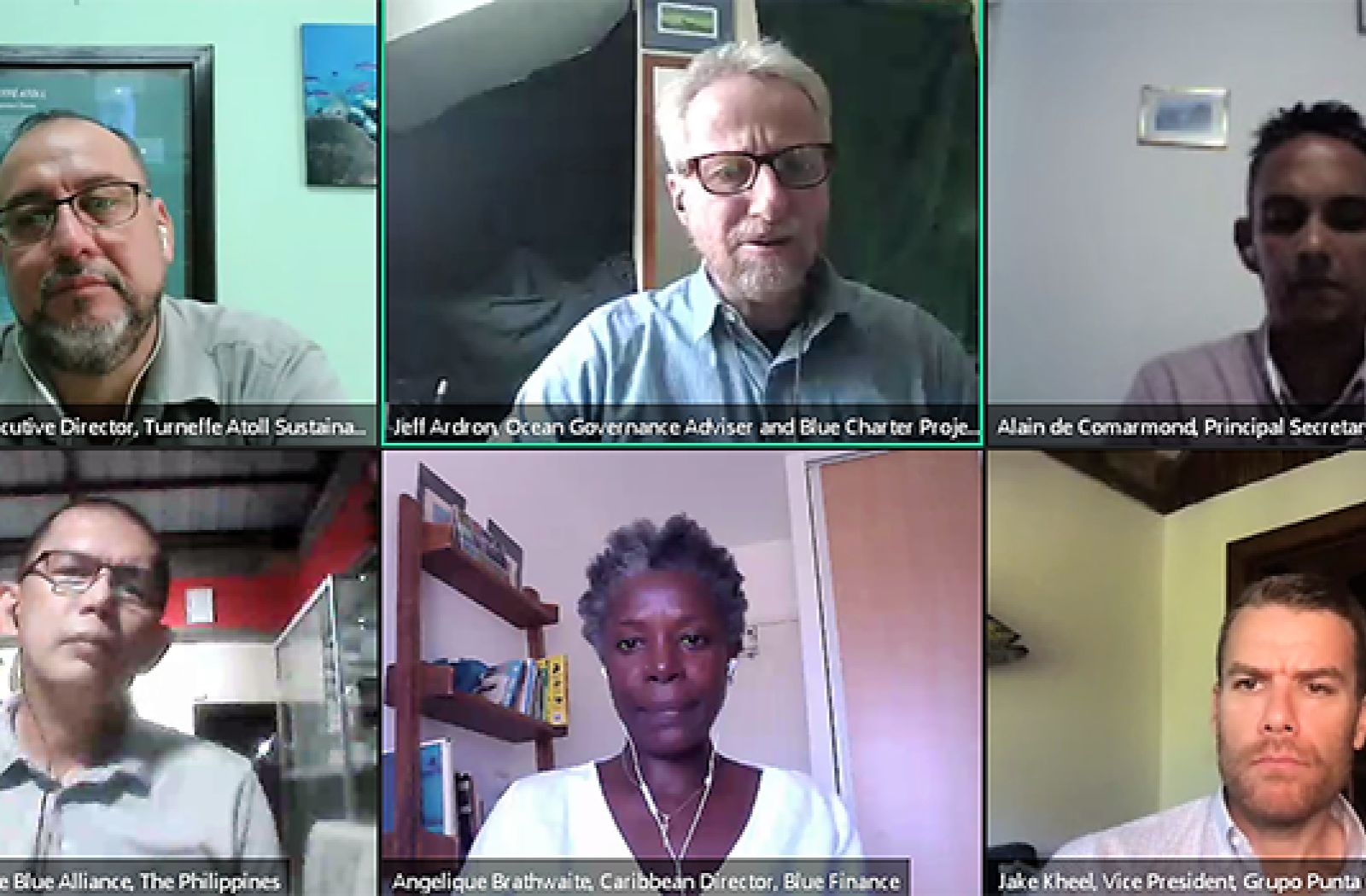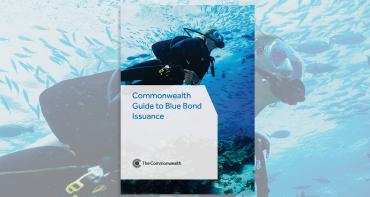More than 180 participants from across the globe tuned in online to hear fresh insights on how to finance ocean protected areas in the Commonwealth. Held on July 22, the webinar was the second in a series organised by the Commonwealth Secretariat, aimed at sharing ideas and solutions for ocean challenges.

More than 180 participants from across the globe tuned in online to hear fresh insights on how to finance ocean protected areas in the Commonwealth.
Held on July 22, the Blue Charter webinar was the second in a series organised by the Commonwealth Secretariat, aimed at sharing ideas and solutions for ocean challenges.
During the webinar, ocean experts from Belize to Seychelles focused on securing funding to manage marine protected areas (MPAs). These are important zones set aside by governments, where activities that harm the environment are restricted or even outlawed, to help protect and nurture marine ecosystems.
Before COVID-19, more than 60% of all existing MPAs in the world reported inadequate budgets for basic management. The situation will become even more dire since the pandemic, as governments are likely to further cut funding as they prioritise other sectors.
Opening the event, Jeff Ardron, lead expert on the Commonwealth Blue Charter at the Commonwealth Secretariat, said: “The intrinsic and monetary value of sustainable marine development, including the establishment of protected places, is now widely recognised.
“But despite the high rate of return financially, monetarily and in ecosystem services, the question remains: how can we finance the management of these highly valuable marine locations, where no or very few natural resources are being exploited?”
New funding sources
Managing marine protected areas can be costly. Funds must support on-the-water patrols, buying and maintaining equipment such as boats and drones, as well as putting in place required infrastructure such as buoys and signage. Office operations and marketing also require budget.
In Seychelles, the total expenditure to manage protected ocean areas in 2017 was US$5.1 million. Now, with 30% of its ocean legally protected – a milestone achieved in March – the government estimates future costs to be US$30-42 million per year.
“Protected area managers are struggling financially, especially due to COVID-19 impact on tourism,” said Seychelles’ Principal Secretary for Environment, Alain de Comarmond.
Traditional finance sources such as grants, entrance fees and corporate social responsibility donations will not be adequate in a post-COVID world.
The government is thus looking to ramp up innovative ways to fund conservation, such as ‘debt-for-nature’ swaps, where creditors agree to reduce sovereign debt if the government invests in marine conservation, as well as ‘blue bonds’ issued by the government, where proceeds go towards ocean protection.
Angelique Brathwaite, Director for the Caribbean at Blue Finance, added that tourism-dependent revenue streams such as visitor centres and underwater attractions have dried up due to COVID-19. Her organisation, which has included a focus on tourism, is now also looking at other options, such as sustainable fishing and ‘blue carbon’ offsets, whereby MPAs can make an income from their capacity to store carbon in mangroves and sea grass, reducing the impacts of climate change.
Engaging NGOs, private sector
All the panellists agreed that sharing responsibility and costs is essential. In Belize for instance, the government routinely co-manages protected areas with either NGOs or businesses.
Valdemar Andrade, who heads the Turneffe Atoll Sustainability Association in Belize said: “This is not an undertaking you can do on your own. All stakeholders, including public and private sectors as well as academia and technical networks need to be involved.”
For the tourist town of Punta Cana in the Dominican Republic, the private sector has emerged as a vital player.
Jake Kheel, Vice President of the Grupo Punta Cana Foundation, shared how hotels and other businesses are realising that protecting coral reefs is an important part of business strategy. He said: “The private sector and tourism economy have a great capacity to involve local and fishing communities. For example, [in Punta Cana] they have been training local fishermen to do conservation work, hiring them as boat captains, dive or maintenance staff, so they have become an important asset.”
Alain Maulion, CEO of the Blue Alliance in the Philippines added that his NGO uses both grants and loans to fund operations.
The panel agreed that a combination of revenue streams are needed and solutions would have to be adapted to the circumstances in each country. Key ideas and scalable solutions shared during the webinar will be circulated to participants.
The webinar is part of a series being rolled out to support the Commonwealth Blue Charter - an agreement by all 54 Commonwealth member countries to work actively together to promote ocean health and sustainable ocean development.


